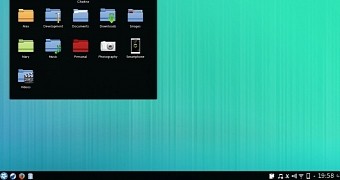Today, September 11, 2016, Chakra GNU/Linux maintainer Neofytos Kolokotronis proudly announced the availability of the latest software versions in the main repositories of the rolling operating system.
Chakra GNU/Linux users are always getting the latest KDE packages as soon as they're available upstream, so starting today they can upgrade to the recently released KDE Plasma 5.7.4 desktop environment, which includes bugfixes and improvements, as well as new language translations the KDE development team was working on during the month of August 2016.
"The latest update for KDE's Plasma series is now available to all Chakra users, together with other important package updates mostly for the core repository," says Neofytos Kolokotronis in today's announcement. "It should be safe to answer yes to any replacement question by Pacman. If in doubt or if you face another issue in relation to this update, please ask or report it on the related forum section."
Vulkan API packages are now available
Of course, KDE Plasma 5.7.4 is not here alone, and it looks like it brings with it many other updated software projects, among which we can mention the LibreOffice 5.2.1 office suite, Wine 1.9.18 tools for running Windows games and apps, Rust 1.11.0 programming language, FontConfig 2.11.94 tool for configuring fonts, systemd 231 init system, and Mesa 12.0.1 3D Graphics Library.
The libinput 1.4.0, xf86-input-libinput 0.16.0, and libpng 1.6.24 libraries have been added as well in the software repositories of Chakra GNU/Linux, along with intel-ucode 20160607 firmware for Intel-based PCs. However, the biggest announcement is that there's now support for the latest Vulkan API (Application Programming Interface) for those who want to run the newest Vulkan games.
All these updated and new packages are already available in the Chakra GNU/Linux repos, so we recommend that you update your installation as soon as possible. To do that, open a terminal emulator and run the "sudo pacman -Syu" command, just like you're doing on any another Arch Linux-based operating system. If you don't see the updates, check out later in the day, as not all mirrors are syncronized.
Furthermore, #vulkanapi packages are now available in #ChakraLinux! @VulkanAPI — Chakra (@chakralinux) September 11, 2016

 14 DAY TRIAL //
14 DAY TRIAL //